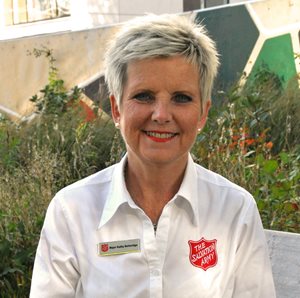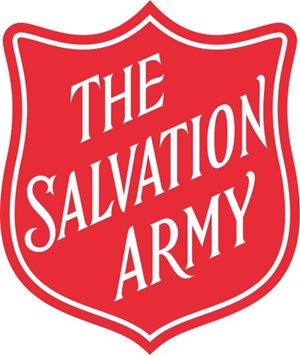Modern slavery in a post-lockdown world

A guest blog from our friends at the Salvation Army.
Major Kathy Betteridge, Director of Anti Trafficking and Modern Slavery for The Salvation Army, tells us about the effect so far of the easing of lockdown restrictions on the issue of modern slavery, what's likely to happen next, and what we can all do to help.


find out about Crimestoppers' new campaign against modern slavery, #SlaveryonYourDoorstep - how to spot the signs and give us information, 100% anonymously; guaranteed.
The beginning of lockdown was characterised by an eerie hush in so many aspects of our lives. The empty roads and skies, and playgrounds, shops and offices devoid of people. In the same way, immediately after lockdown there were longer silences for the operators of The Salvation Army’s modern slavery referral helpline, which takes calls from people who suspect that they or someone they’ve come across could be a victim of modern slavery and in need of help.
As the world became accustomed to the ‘new normal’, the phones started ringing again and calls increased, as did the number of adults escaping modern slavery referred to us to provide specialist support through our network of safe houses and outreach workers.
It's understandable that lockdown measures and closed international borders resulted in a temporary fall in the number of slavery victims being identified. What concerns us most right now is that social distancing measures will have led to slave masters discarding people they had been forcing to work in places like restaurants, hotels and car washes and that these victims may not know there is help available. Where are these people now who urgently need to be identified and delivered into our protective care?
As lockdown eases and international borders reopen, we anticipate that the fallout from the coronavirus pandemic will sadly lead to many more people, both British nationals and people trafficked from overseas, being exploited in the UK.
A worldwide economic downturn linked to Coronavirus will leave many more people in poverty. This will result in them becoming susceptible to criminals wanting to exploit demand for cheap labour or prey on young or vulnerable people to exploit in ‘County Lines’ networks smuggling drugs into rural areas. We need to ensure that people at risk in our society are not trapped and mistreated in this way.
The Salvation Army will continue our activities across the world to support the communities most at risk of this kind of exploitation and, just as they have throughout the pandemic, our safe houses and outreach services will be open to help people access the support they need as they begin to rebuild their lives.
Major Kathy Betteridge is Director of Anti Trafficking and Modern Slavery for The Salvation Army, a post she has held since 2018 after working in local and central government and more than 25 years serving as a Salvation Army officer in a number of church and social welfare roles.
Most recently, she has been actively engaged in projects focusing on human trafficking and sexual exploitation. In her current role she works with a wide range of stakeholders and government to deliver specialist support services, as well as move on support for adult victims of trafficking and modern slavery.
find out about Crimestoppers' new campaign against modern slavery, #SlaveryonYourDoorstep - how to spot the signs and give us information, 100% anonymously; guaranteed.


find out about Crimestoppers' new campaign against modern slavery, #SlaveryonYourDoorstep - how to spot the signs and give us information, 100% anonymously; guaranteed.
The beginning of lockdown was characterised by an eerie hush in so many aspects of our lives. The empty roads and skies, and playgrounds, shops and offices devoid of people. In the same way, immediately after lockdown there were longer silences for the operators of The Salvation Army’s modern slavery referral helpline, which takes calls from people who suspect that they or someone they’ve come across could be a victim of modern slavery and in need of help.
As the world became accustomed to the ‘new normal’, the phones started ringing again and calls increased, as did the number of adults escaping modern slavery referred to us to provide specialist support through our network of safe houses and outreach workers.
It's understandable that lockdown measures and closed international borders resulted in a temporary fall in the number of slavery victims being identified. What concerns us most right now is that social distancing measures will have led to slave masters discarding people they had been forcing to work in places like restaurants, hotels and car washes and that these victims may not know there is help available. Where are these people now who urgently need to be identified and delivered into our protective care?
That’s why it’s important for everyone to be vigilant in spotting the signs of people trapped in slave-like conditions and report their suspicions to Crimestoppers to help the police combat this evil crime, or call The Salvation Army's confidential referral helpline on 0800 808 3733, where specialist staff are available 24/7 to get help to victims of slavery.
Already in the past weeks, Salvation Army officers and volunteers have been able to work with police to rescue and support victims of slavery who have come to our foodbanks and community centres for help, homeless and destitute having been discarded by their traffickers. Slavery is a hidden crime and this is just the tip of the iceberg.As lockdown eases and international borders reopen, we anticipate that the fallout from the coronavirus pandemic will sadly lead to many more people, both British nationals and people trafficked from overseas, being exploited in the UK.
A worldwide economic downturn linked to Coronavirus will leave many more people in poverty. This will result in them becoming susceptible to criminals wanting to exploit demand for cheap labour or prey on young or vulnerable people to exploit in ‘County Lines’ networks smuggling drugs into rural areas. We need to ensure that people at risk in our society are not trapped and mistreated in this way.
The Salvation Army will continue our activities across the world to support the communities most at risk of this kind of exploitation and, just as they have throughout the pandemic, our safe houses and outreach services will be open to help people access the support they need as they begin to rebuild their lives.
Major Kathy Betteridge is Director of Anti Trafficking and Modern Slavery for The Salvation Army, a post she has held since 2018 after working in local and central government and more than 25 years serving as a Salvation Army officer in a number of church and social welfare roles.
Most recently, she has been actively engaged in projects focusing on human trafficking and sexual exploitation. In her current role she works with a wide range of stakeholders and government to deliver specialist support services, as well as move on support for adult victims of trafficking and modern slavery.
find out about Crimestoppers' new campaign against modern slavery, #SlaveryonYourDoorstep - how to spot the signs and give us information, 100% anonymously; guaranteed.